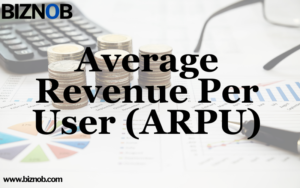What Is an Account Balance? In today’s intricate financial landscape, clearly comprehending account balance is pivotal to maintaining financial stability and making informed decisions. We believe in empowering our readers with accurate and comprehensive knowledge. In this guide, we’ll delve into the depths of account balance, its significance, types, and how it plays a pivotal role in your financial journey.
Introduction: Unraveling Account Balance
Account balance is a fundamental concept in personal finance that refers to the total amount of funds in a financial account at a given time. It is a snapshot of your financial health, reflecting the culmination of deposits, withdrawals, transfers, and any accrued interest. A clear understanding of your account balance enables you to make prudent financial decisions, prevent overdrafts, and manage your expenses effectively.
Significance of Account Balance
Maintaining an optimal account balance is essential for various financial reasons. It measures your spending habits, helps prevent overspending, and provides insights into your overall financial well-being. Monitoring your account balance regularly allows you to identify unauthorized transactions promptly, ensuring the security of your funds. Additionally, a healthy account balance can positively impact your credit score, as it demonstrates financial responsibility to lenders.
Types of Account Balances
Available Balance
The available balance represents the amount of funds that you can access immediately. It factors in pending transactions, holds, and any overdraft protection you may have. This balance is crucial for determining how much you can spend without overdraft fees.
Current Balance
The current balance is the total funds in your account at a specific moment. It includes both available funds and pending transactions that haven’t yet cleared. Regularly monitoring your current balance provides a real-time snapshot of your financial standing.
Ledger Balance
The ledger balance is the actual balance in your account after all transactions have been processed, including deposits, withdrawals, and any fees. It is the foundation for calculating interest and managing your account’s balance.
Factors Influencing Account Balance
Several factors contribute to fluctuations in your account balance:
- Deposits and Withdrawals: Regular deposits from income sources and timely withdrawals for expenses directly impact your account balance.
- Transaction Timing: The timing of deposits and withdrawals can influence your available balance, especially when considering pending transactions.
- Interest and Fees: Accrued interest from savings or investments and fees charged by financial institutions can affect your account balance.
- Transfers: Moving funds between accounts can alter the distribution of your balance across various financial products.
Managing Your Account Balance Effectively
Effectively managing your account balance requires proactive strategies:
- Budgeting: Creating a budget helps you allocate funds for various expenses, ensuring that you don’t overspend.
- Automated Alerts: Set up low-balance alerts to receive notifications when your account balance falls below a certain threshold.
- Regular Monitoring: Review your account transactions frequently to identify discrepancies or unauthorized activities.
- Emergency Fund: Maintain an emergency fund to cover unexpected expenses without significantly impacting your account balance.
Account Balance and Financial Goals
Your account balance is intricately linked to your financial goals:
- Short-Term Goals: Tracking your account balance aids in achieving short-term objectives like paying bills and meeting monthly expenses.
- Long-Term Goals: Accumulating a healthy account balance contributes to achieving long-term financial milestones, such as purchasing a home or retirement planning.
Tips to Maintain a Healthy Account Balance
- Track Spending: Monitor your spending patterns to ensure you’re living within your means and not depleting your account balance unnecessarily.
- Minimize Fees: Avoid unnecessary fees by adhering to your bank’s terms and conditions, such as maintaining a minimum balance.
- Regular Deposits: Consistently contribute to your accounts to maintain a steady account balance and benefit from compound interest.
- Emergency Savings: Set aside funds in an emergency savings account to handle unexpected expenses without disrupting your main account balance.
Summary
- The value of a checking, savings, or investment account at any one time is known as the account’s balance.
- Bank statements and Internet banking both display customer account balances.
- The value of securities in a brokerage account might grow and decrease daily as market conditions dictate.













































